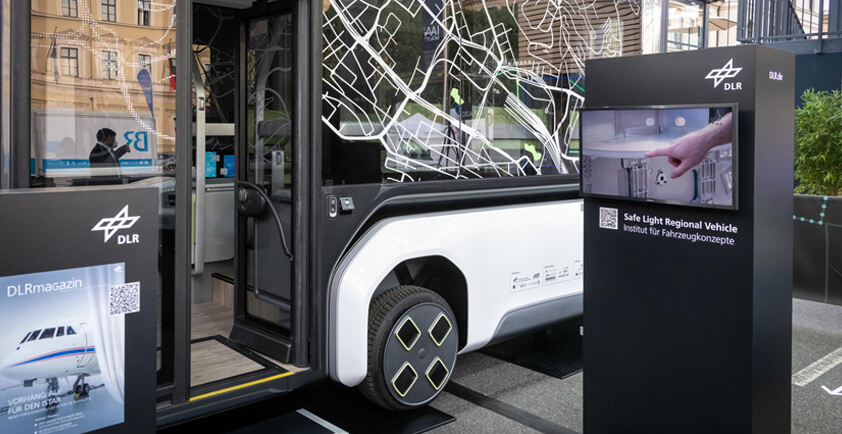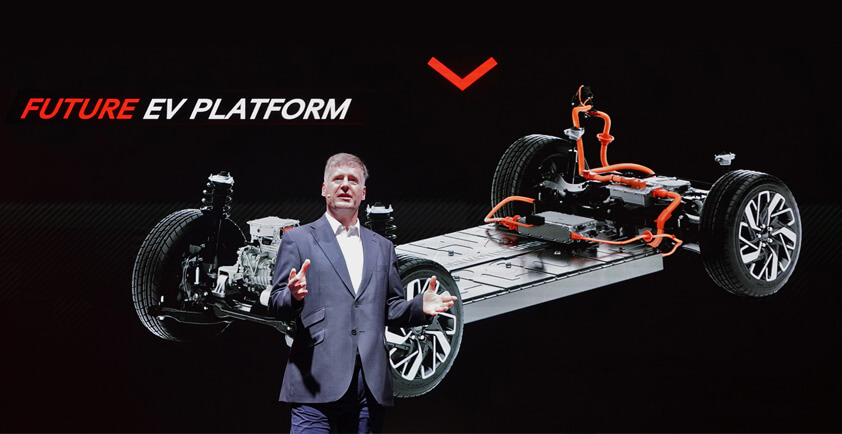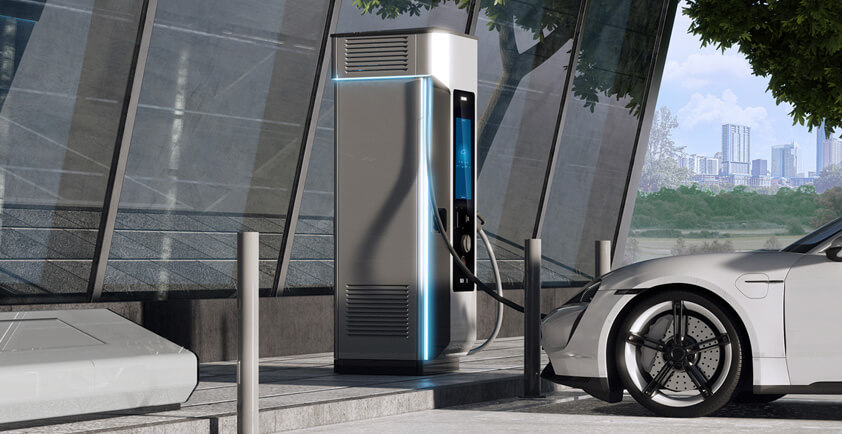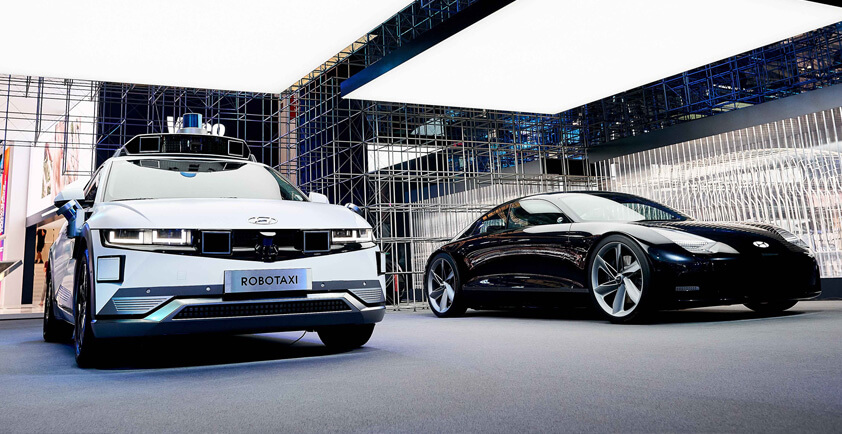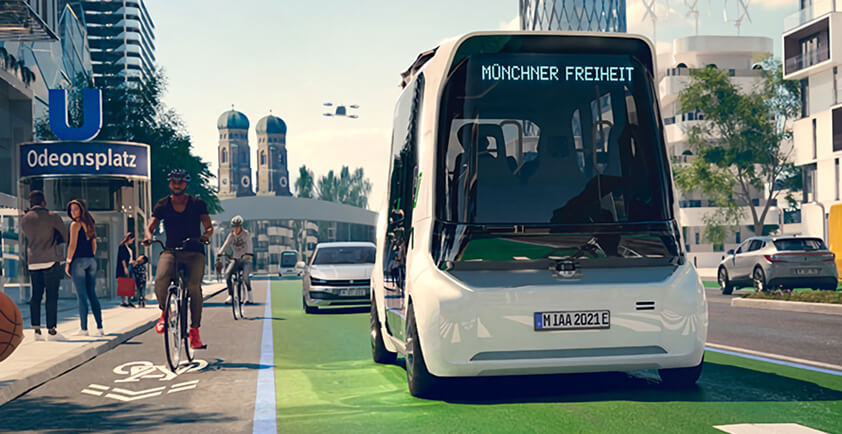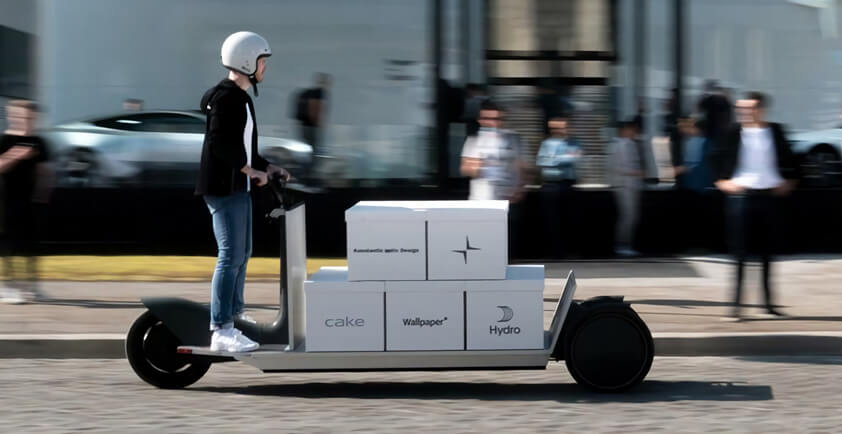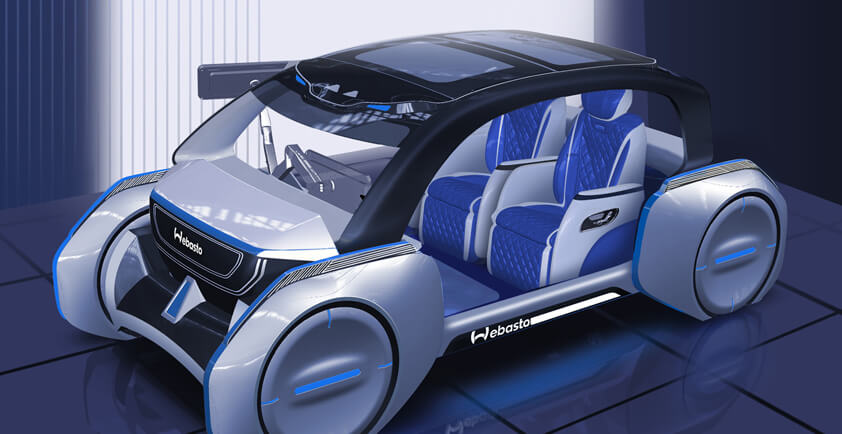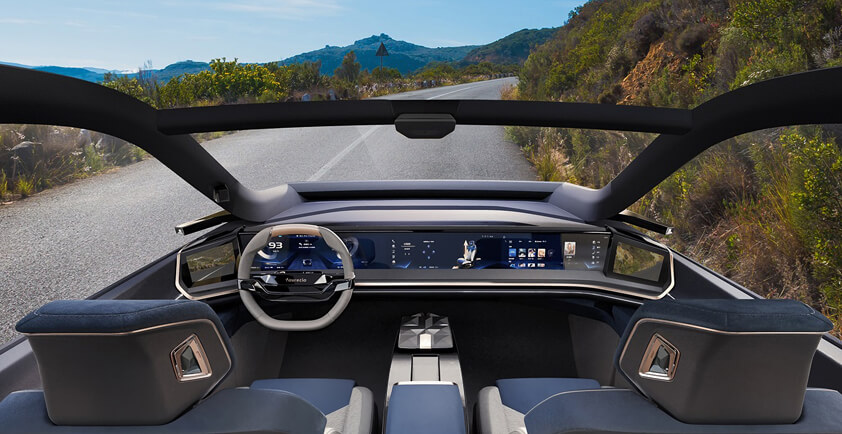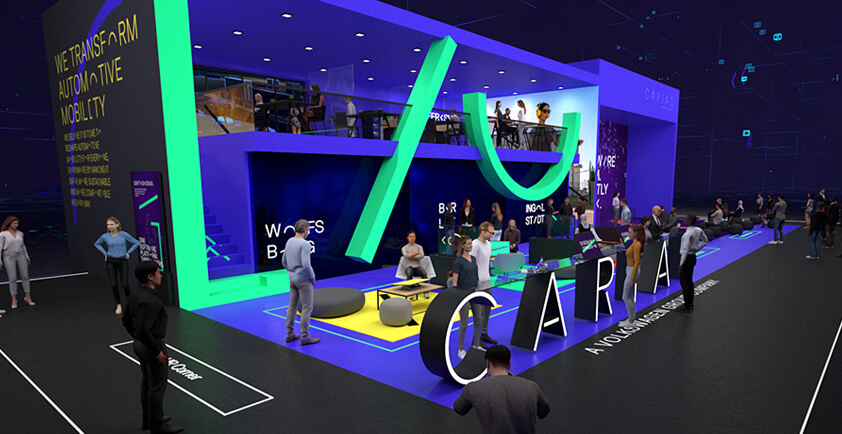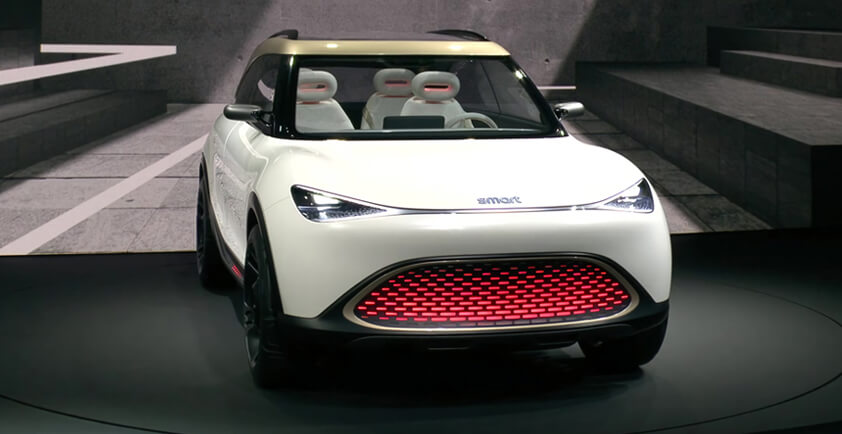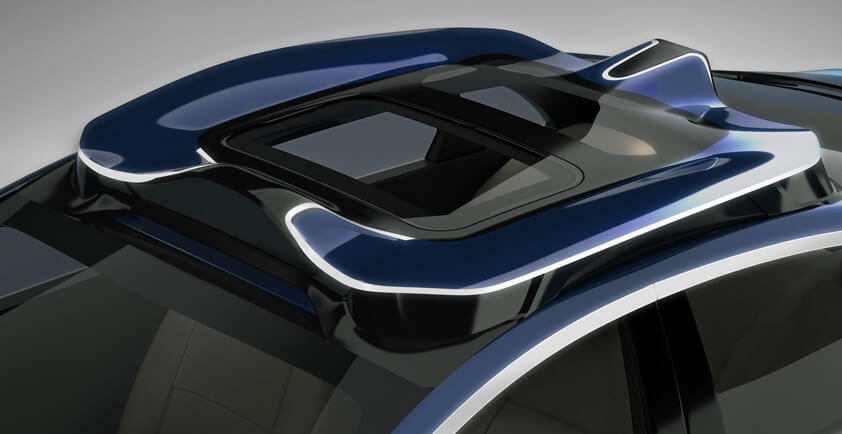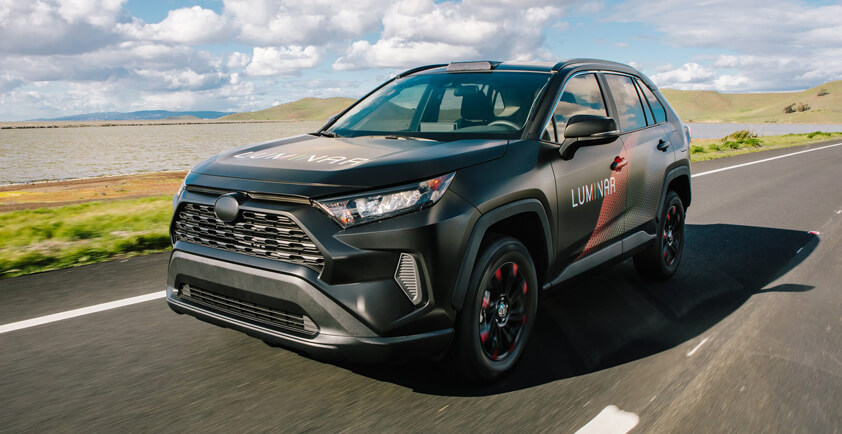
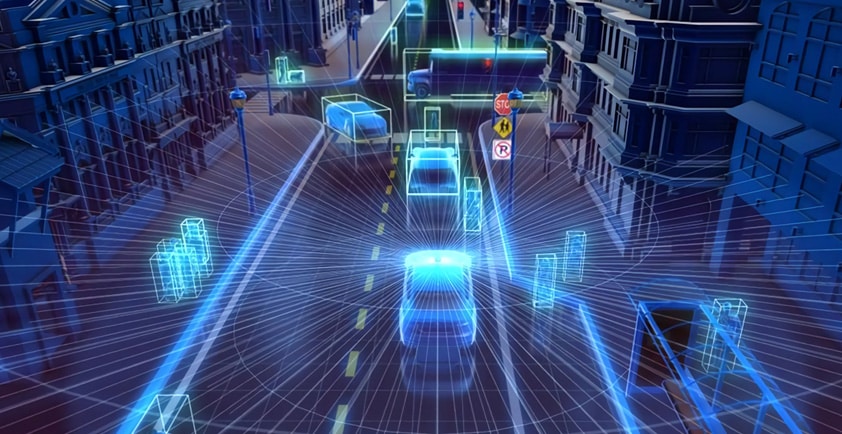
VELODYNE SHOWCASES ADVANCED LIDAR AND SOFTWARE SOLUTIONS FOR ITS AND MOBILE APPLICATIONS AT IAA MOBILITY
>> NI and Seoul Robotics Showing Lidar-based Solutions in Velodyne’s Booth
SAN JOSE, Calif. – Velodyne Lidar, Inc. will demonstrate its innovative lidar technologies at IAA Mobility in Munich. Velodyne will display its technology leadership and product breadth in lidar sensors and software. Velodyne’s solutions power autonomous applications that advance safe, sustainable and accessible mobility, infrastructure and security.
Velodyne is hosting a press event at its IAA Mobility booth on Sept. 6 at 1:15 to 1:30 p.m. Velodyne executives will highlight how Velodyne´s solutions deliver the performance, range and reliability to power customers’ next-generation infrastructure and mobile applications. They will also discuss Velodyne’s portfolio of compact, solid-state sensors, which are embeddable for sleek, stylish integration into vehicles and robotics applications.
“At IAA Mobility, we will show how Velodyne’s sensors and software meet a wide range of customer needs to power safe mobility and smart city infrastructure globally,” said Erich Smidt, Vice President of Europe, Velodyne Lidar. “We will also have partners in our stand that are at the forefront in bringing to market the future of autonomous solutions. NI and Seoul Robotics are both recognized leaders in delivering high-quality solutions with the goal of improving people’s lives and increasing safety in our communities.”
Partners Showcase Lidar-Based Solutions
NI, developer of automated test and automated measurement systems, will co-exhibit at the Velodyne booth. NI will show simulations optimized for Velodyne’s lidar sensors that can be used in developing and testing advanced driver assistance systems (ADAS) and autonomous vehicle (AV) capabilities. NI simulation solutions make it easier to integrate Velodyne’s sensors into vehicle solutions, providing faster time to market and improving vehicle safety. NI will demonstrate how its monoDrive AV simulation software is using Velodyne’s lidar technology to create digital twins and is providing validated physics-based sensor models for Velodyne lidar sensors.
“Our ADAS and lidar simulation capabilities support faster system development and deployment of ADAS and AV solutions that use Velodyne’s sensors. The NI monoDrive Real-to-Virtual technology provides an end-to-end solution for collecting real-world data from cameras, lidars and GNSS systems to create high-fidelity digital twins that help to accelerate ADAS and AV development,” said Jeff Phillips, Director of Marketing for NI’s Transportation Business Unit. “The combination of Velodyne’s high-performance sensors and our simulation and validation capabilities allows developers to test and validate solutions in a massively scalable variety of conditions before they reach the road.”
Seoul Robotics, an Automated with Velodyne partner, will demonstrate at the Velodyne booth its AI perception engine for Velodyne’s lidar sensors which provides real-time object detection, classification, tracking and prediction for autonomous systems. The AI engine can power self-driving cars as well as smart city applications and advanced parameter monitoring systems for facilities. Seoul Robotics’ SENSR™ perception software includes an AI engine that is fully optimized to utilize Velodyne’s portfolio of lidar sensors, including the Puck™, Ultra Puck™ and Alpha Prime™.
Velodyne Highlights High Performance Sensors and Software
Among the Velodyne products showcased at IAA Mobility are:
Velarray H800, a solid-state lidar sensor architected for automotive grade performance and built using Velodyne’s breakthrough proprietary micro-lidar array architecture (MLA). With combined long-range perception and a broad field of view, the sensor is designed for safe navigation and collision avoidance in ADAS and autonomous mobility applications. It can enable advanced driver assistance features such as Adaptive Cruise Control (ACC), Lane Keep Assist (LKA) and Pedestrian Automatic Emergency Braking (PAEB). The Velarray H800’s compact, embeddable form factor is designed to fit neatly behind the windshield of a truck, bus or car, or be mounted seamlessly on the vehicle exterior.
Velarray M1600, an innovative solid-state lidar sensor designed to serve mobile robotic applications. The sensor is built using Velodyne’s MLA and provides outstanding near-field perception for safe navigation. The Velarray M1600 enables touchless mobile and last-mile delivery robots to operate autonomously and safely, without human intervention. This durable and compact sensor can be deployed in a wide variety of environments and weather conditions allowing nearly 365-day, 24/7 usage.
Velabit™, Velodyne’s smallest sensor, which brings new levels of versatility and affordability to 3D lidar perception. This compact, mid-range lidar sensor is highly configurable for specialized use cases and can be embedded almost anywhere within vehicles, robots, unmanned aerial vehicles (UAVs) and infrastructure. The solid-state Velabit advances Velodyne’s mission to make high-quality 3D lidar sensors readily accessible to everyone.
Vella™, Velodyne’s breakthrough ADAS software based on the directional view Velarray sensor. Vastly superior to existing approaches that utilize camera+radar, Vella will revolutionize advanced driver assistance functionalities currently on the market, including ACC, LKA and PAEB. The Vella Development Kit (VDK) enables companies to utilize the advanced capabilities of Vella software in their autonomous solutions. VDK helps companies use their development resources more efficiently by reducing the time and effort required to integrate 3D lidar sensors into applications.
